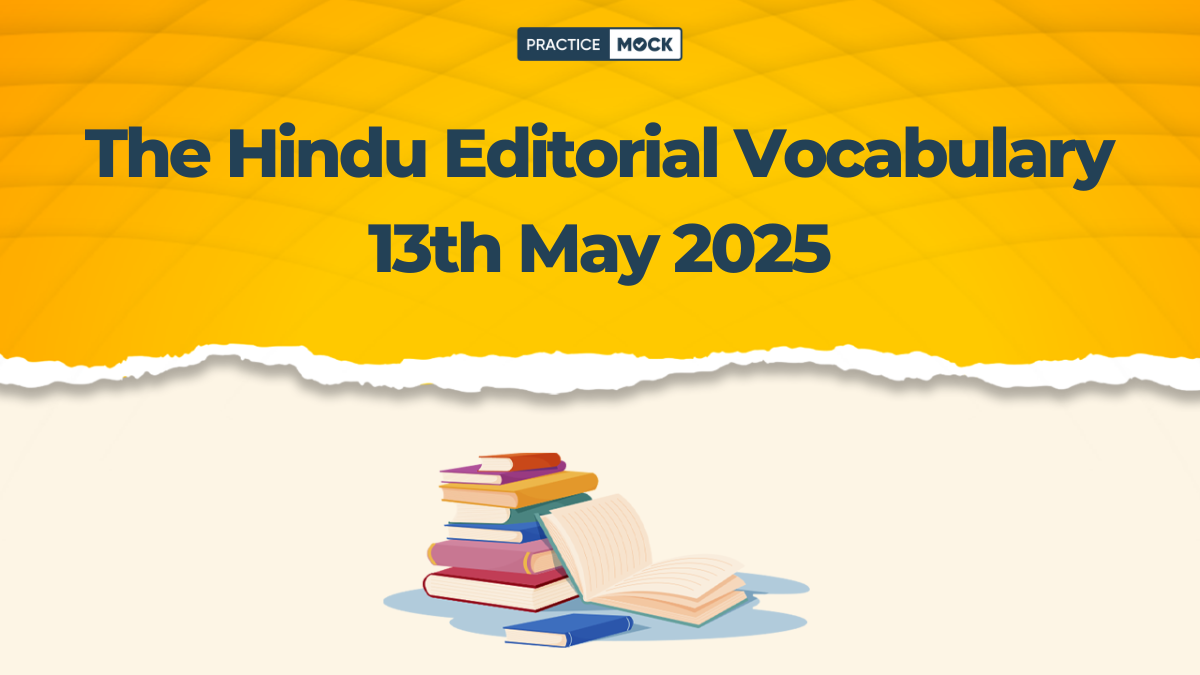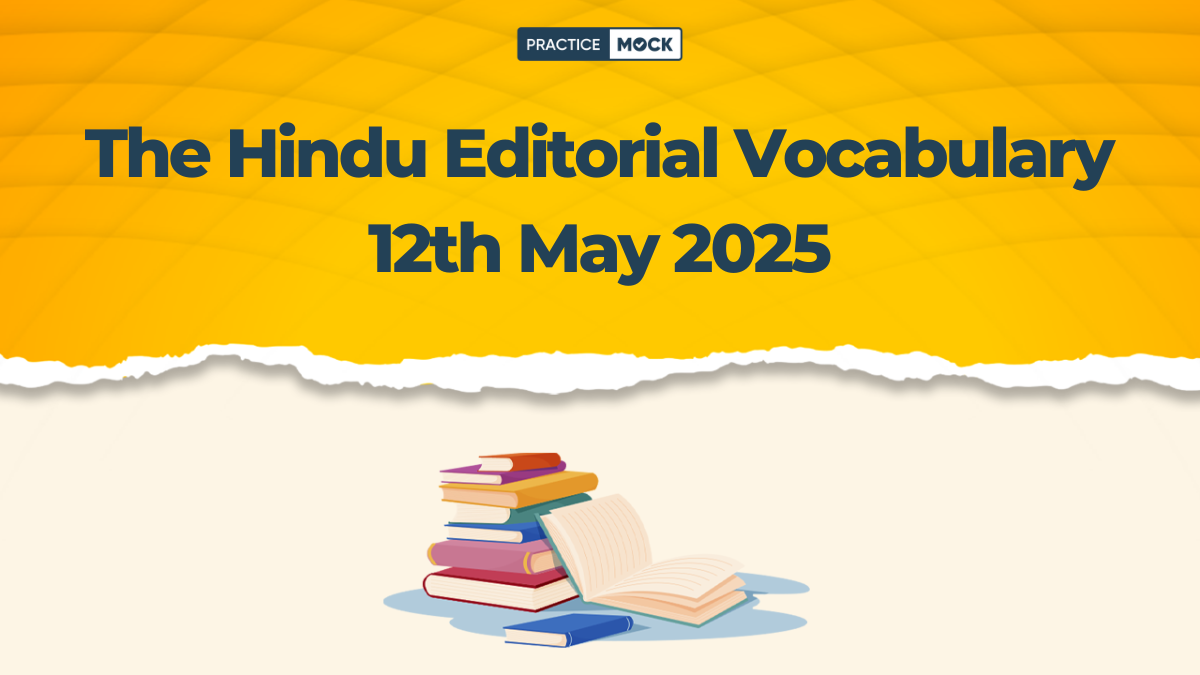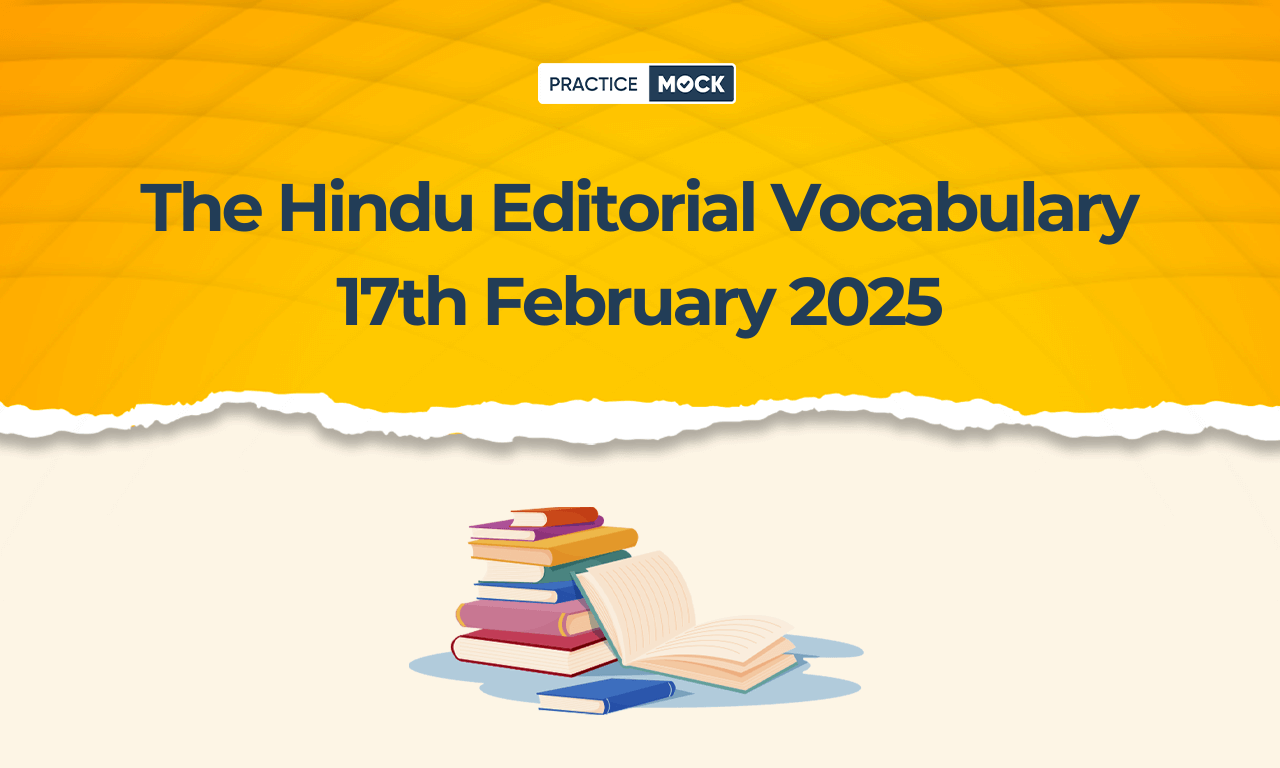

| Difficult Word/ Phrase | Contextual Sense |
| Flaw | Defect |
| On an equal footing | in conditions where everyone has an equal chance |
| Inherent | Existing as an essential constituent or characteristic |
| Bias | A partiality that prevents objective consideration of an issue or situation |
| Manifestly | visibly clear |
| Arbitrary | Based on or subject to individual discretion or preference or sometimes impulse or caprice |
| Part ways | to end a relationship |
| Expansive | Of behaviour that is impressive and ambitious in scale or scope |
| Anomaly | Deviation from the normal or common order or form or rule |
| Prohibit | Command against |
| Pierce | make a way through |
| Iniquity | An unjust act |
| Exhort | Force or impel in an indicated direction |
| Fete | Bestow honour |
| Push the envelope | approach or extend the limits of what is possible |
| Antediluvian | So extremely old as seeming to belong to an earlier period |
| Cherry-pick | select only the ones you like |
| Antiquated | So extremely old as seeming to belong to an earlier period |
| Autonomy | Personal independence |
A law, without a flaw (defect): on availing abortion services
The Supreme Court has put unmarried women on an equal footing (in conditions where everyone has an equal chance) in availing abortion services
The most celebrated kind of court judgments are those that eliminate inherent (Existing as an essential constituent or characteristic) bias (A partiality that prevents objective consideration of an issue or situation) vested in a law or rules framed by the government. The Supreme Court’s move last week to set right a rule that was ‘manifestly (visibly clear) arbitrary (Based on or subject to individual discretion or preference or sometimes impulse or caprice) and violative of women’s right to bodily dignity’ fits right into the concept of justice that is free, and without prejudice or favour to any person or group of people. Earlier, the apex court in its wisdom, facilitated the abortion (beyond 20 weeks) of a young unmarried woman whose partner parted ways (to end a relationship) after realising she was pregnant. Had the Court rested then, it might have meant relief for one woman who had to go all the way to the top court of the land in order to access what seven other categories of women would have been able to do without legal hassles. While the judgment could have been cited in support of other women in a similar situation, the law retained its flaw, and others would still have had to take the long legal route, and wait upon the discretion of individual judges. Utilising the full, expansive (Of behaviour that is impressive and ambitious in scale or scope) reach of its powers, the Supreme Court has decided to correct the anomaly (Deviation from the normal or common order or form or rule). A Bench comprising Justices D.Y. Chandrachud and J.B. Pardiwala are considering pronouncing a judgment which would make access to medical abortion a level-playing field. The Medical Termination of Pregnancy Act, 1971 and its Rules, 2003, prohibit (Command against) unmarried women who are between 20 weeks and 24 weeks pregnant to terminate the pregnancy. The Court’s argument pierced (make a way through) at the heart of the iniquity (An unjust act) in the law: if a married woman had access to abortion facilities during the same period, then why should an unmarried woman be prevented from using these services? Exhorting (Force or impel in an indicated direction) the Government to have a ‘forward-looking interpretation of the law’, the Bench pointed out that the rules mentioned ‘partner’ and not husband.
If the Supreme Court was feted (Bestow honour) for taking a liberal view of the law, its act of pushing the envelope (approach or extend the limits of what is possible) further to set right existing anomalies in law is to be celebrated in full measure. At a time when the United States’ Supreme Court’s recent ruling overturning Roe vs Wade has drawn that nation back several decades on the abortion question, India’s apex court’s move stands out in sharp contrast. It is the surest example of the Court’s willingness to be modern and progressive, in order to remove antediluvian (So extremely old as seeming to belong to an earlier period) inconsistencies in existing laws. It is also in the full spirit of Article 14 of the Constitution that guarantees to all persons equality before the law and equal protection of laws. The law cannot cherry-pick (select only the ones you like) beneficiaries, and if there is to be any justice at all, the antiquated (So extremely old as seeming to belong to an earlier period) principles on which old Acts were built, cannot continue to frustrate young women who claim autonomy (Personal independence) of their own body.
Want to improve your vocabulary further? Download the Lists of Word-Meanings of Previous Months here.
Recent Posts
How to Crack RBI Grade B in First Attempt?
Aspirants preparing for RBI Grade B exam. Know the 10 tips to crack RBI 2025…
IBPS PO vs RRB PO, Which Exam is Easier to Crack?
IBPS PO or RRB PO? Compare difficulty, pattern, and job roles to choose the best…
How to Master Government Schemes for RBI Grade B Exam
Master government schemes effectively for the RBI Grade B exam with comprlete strategies, Important resources…
IBPS RRB Scale 2 Officer GBO Syllabus and Exam Pattern 2025
IBPS RRB Scale 2 Officer GBO Syllabus and Exam Pattern 2025, Know the syllabus of…
RBI Grade B Study Plan 2025 For 60 Days, Ultimate Roadmap to Exam Success
Aiming to ace RBI Grade B 2025? Follow our 60-day powerhouse schedule for expert strategies,…
IOB LBO Syllabus 2025, Check Indian Overseas Bank Local Bank Officer Exam Pattern
Indian Overseas Bank LBO Syllabus 2025, Check Latest Exam Pattern, topic-wise syllabus, important topics to…


